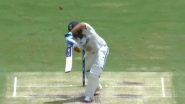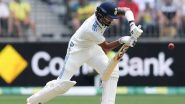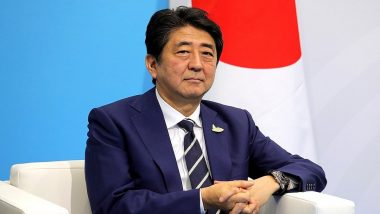Tokyo, August 28: Shinzo Abe, who was serving as the Prime Minister of Japan for the last eight years, stepped down from his position on Friday. Shocking the domestic as well as the geo-political circles, Abe announced his sudden resignation - way before his term was scheduled to conclude in 2021. His exit has led to an array of speculations over the future of Japan.
What's Next? How Will Next PM be Elected?
The ruling Liberal Democratic Party (LDP) will have to elect its new president - as Abe was heading the political outfit apart from being the Prime Minister. As per the precedent, the head of the ruling party in Japan is also at helm of the government.
Under normal circumstances, the LDP internal elections are a grand affair, which witnesses a first round of voting involving registered grassroot workers and local chapter heads. The second round polls allow only elected lawmakers of the party and top office-bearers to vote.
However, when a leader exits from his position on an immediate basis, the first step of election is skipped and the lawmakers and representatives directly vote to choose a new leader.
While Abe will continue as the interim PM despite "deteriorating health conditions", it was not clear how long will he continue to serve in his position. If Abe has to exit in the next couple of days or weeks, the LDP is unlikely to conduct two rounds of voting to elect its next president.
The new head elected by the LDP would automatically be assumed as the next Prime Minister as the party enjoys absolute majority in the Lower House of Parliament. In case of a coalition government, the election of the new PM would had been factored by the voting pattern of allies.
List of 5 Potential Successors
Shinjiro Koizumi, the son of Japan's one-time popular Prime Minister Junichiro Koizumi, could emerge as a dark horse in the race for premiership after Abe's exit, opine experts. The 39-year-old enjoys popularity among the country's youth, and as the environment minister, he had gained huge fanship by his decision to cut down on coal - considered as the prime source of pollution in the country. His prospects, however, remain challenged as many within the party consider him as "too young".
Taro Aso could emerge as one of the natural successors, considering his vast experience as part of several LDP governments. The 79-year-old, apart from being considered as a close Abe ally, also shares the same views as the outgoing premier. He was, in 2008, elected as the LDP chief which would have paved way for his prime ministership. The party had, however, faced a shock defeat in 2009 elections.
Seiko Noda (59), a critic of Abe and one of the tallest women politicians in the country, may also end up throwing her name in the fray for LDP leadership. Since 2018, her name continues to make the rounds as the potential first female PM of the Southeast Asian nation. In the erstwhile LDP-led governments, she has served as Minister for internal affairs and women empowerment.
Yoshihide Saga, 71, is one of the most trusted lieutenants of Abe. He had pushed for the latter's return to the helm of party in 2012. After Abe was elected as the Prime Minister, Saga was inducted into the government as chief cabinet secretary. The popularity of Saga peaked in the nation last year after he unveiled "Riewa" - an imperial era name - to be used for Japanese calendars.
Shigeru Ishiba could also emerge as the next face of Japan government if the ruling LDP decides to chalk out a new course in the post-Abe era. Ishiba, 63, is a consistent critic of the Prime Minister despite being a member of the LDP camp. He vied for the party leadership in 2012 and had won the first round of voting that involved the grassroot workers. In the second round, however, he was defeated due to the lack of support among lawmakers and party office-bearers.
Ishiba, over the years, has batted for localisation and targeted improvement of regional bank sector. The 63-year-old is also in favour of increasing state expenditure for public works in order to provide more jobs. In successive surveys, he had also emerged as the most preferred alternative to Abe in Japan. However, he was crushed in an intra-party poll conducted ahead of the 2018 general elections.
(The above story first appeared on LatestLY on Aug 28, 2020 04:51 PM IST. For more news and updates on politics, world, sports, entertainment and lifestyle, log on to our website latestly.com).













 Quickly
Quickly





















